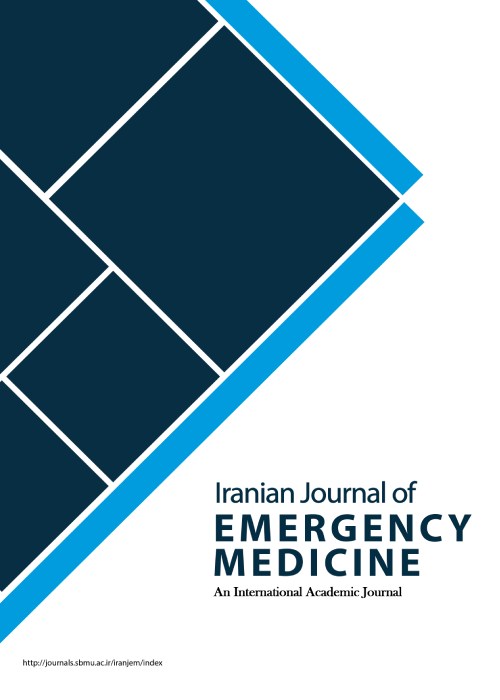Affecting Factors on the Quality of Resident Education in Emergency Department; a Cross-Sectional Study
Author(s):
Article Type:
Research/Original Article (بدون رتبه معتبر)
Abstract:
Introduction
Considering the differences between the infrastructures of healthcare systems in Iran and advanced countries, there is a need for directing the education of emergency medicine residents in a way that not only meets the treatment needs of the society, but can also cover the determined educational goals for the residents of this specialty with the guidance and help of the faculty members. The first steps might be evaluating the present status and surveying the residents and faculty members who are active in emergency medicine specialty. Therefore, the present study was designed and performed with the aim of evaluating the factors affecting the quality of resident education in emergency department (ED).
Methods
Initially, a group that consisted of 5 experienced faculty members expressed their opinions on the factors affecting the quality of resident education in an interview, which resulted in the design of a questionnaire with 27 topics that led to preparation of a 23-item questionnaire after validity and reliability evaluation. These items were classified in 3 groups of personal factors, environmental factors, and patient-related factors. Consecutive sampling was done and all the residents and faculty members of emergency medicine in Tehran University of Medical Sciences who were active in this specialty during the study period were eligible to participate in the study. A quantitative survey was done using 5-point Likert scale. Then the data were statistically analyzed to evaluate the agreement rate of the residents and faculty members in each item.
Results
In total, 57 residents with the mean age of 32.75 ± 6.12 years and 23 faculty members with the mean age of 39.65 ± 5.54 years participated in the study and filled out the questionnaires. Mean scores of the 3 categories of evaluated factors, namely personal, environmental, and patient-related factors from the viewpoint of all participants were 1.17 ± 0.12, 1.09 ± 0.15, and 1.52 ± 0.22, respectively. The mean scores calculated for the 3 studied categories were not significantly different between the residents and faculty members of emergency medicine who participated in the study (p > 0.05). In the opinion of faculty members, decreasing the number of shifts does not lead to improvement in the quality of residents training. However, they believed that 12-hour shifts, clinical rounds in ED and the residents teaching to each other are effective in improvement of the quality of their education and the opinion of residents and faculty members were significantly different in these cases (p
Conclusion
Faculty members and residents of emergency medicine do not share the same opinion on working hours, and the number of clinical shifts and their effect on resident training. The faculty members believed that 12-hour shifts provide more opportunities for education compared to 8-hour shifts and reducing the number of clinical shifts would decrease the quality of education.Keywords:
Language:
Persian
Published:
Iranian Journal of Emergency medicine, Volume:5 Issue: 1, 2018
Page:
5
magiran.com/p1792320
دانلود و مطالعه متن این مقاله با یکی از روشهای زیر امکان پذیر است:
اشتراک شخصی
با عضویت و پرداخت آنلاین حق اشتراک یکساله به مبلغ 1,390,000ريال میتوانید 70 عنوان مطلب دانلود کنید!
اشتراک سازمانی
به کتابخانه دانشگاه یا محل کار خود پیشنهاد کنید تا اشتراک سازمانی این پایگاه را برای دسترسی نامحدود همه کاربران به متن مطالب تهیه نمایند!
توجه!
- حق عضویت دریافتی صرف حمایت از نشریات عضو و نگهداری، تکمیل و توسعه مگیران میشود.
- پرداخت حق اشتراک و دانلود مقالات اجازه بازنشر آن در سایر رسانههای چاپی و دیجیتال را به کاربر نمیدهد.
In order to view content subscription is required
Personal subscription
Subscribe magiran.com for 70 € euros via PayPal and download 70 articles during a year.
Organization subscription
Please contact us to subscribe your university or library for unlimited access!


